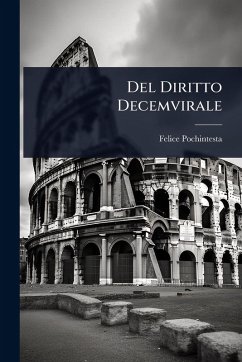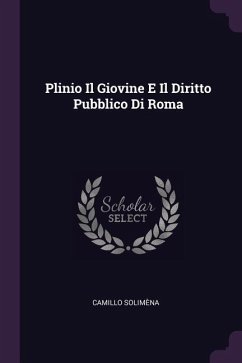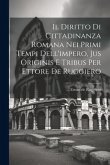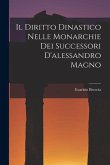Del Diritto Decemvirale, by Felice Pochintesta, offers a detailed exploration of Decemviral law within the context of ancient Roman legal history. This historical legal study provides valuable insights into the origins and development of Roman jurisprudence, specifically examining the Law of the Twelve Tables and its significance in shaping Roman society. Pochintesta's work remains an important resource for legal scholars and historians interested in understanding the foundations of Western legal traditions. This work has been selected by scholars as being culturally important, and is part of the knowledge base of civilization as we know it. This work was reproduced from the original artifact, and remains as true to the original work as possible. Therefore, you will see the original copyright references, library stamps (as most of these works have been housed in our most important libraries around the world), and other notations in the work. This work is in the public domain in the United States of America, and possibly other nations. Within the United States, you may freely copy and distribute this work, as no entity (individual or corporate) has a copyright on the body of the work. As a reproduction of a historical artifact, this work may contain missing or blurred pages, poor pictures, errant marks, etc. Scholars believe, and we concur, that this work is important enough to be preserved, reproduced, and made generally available to the public. We appreciate your support of the preservation process, and thank you for being an important part of keeping this knowledge alive and relevant.
Bitte wählen Sie Ihr Anliegen aus.
Rechnungen
Retourenschein anfordern
Bestellstatus
Storno








